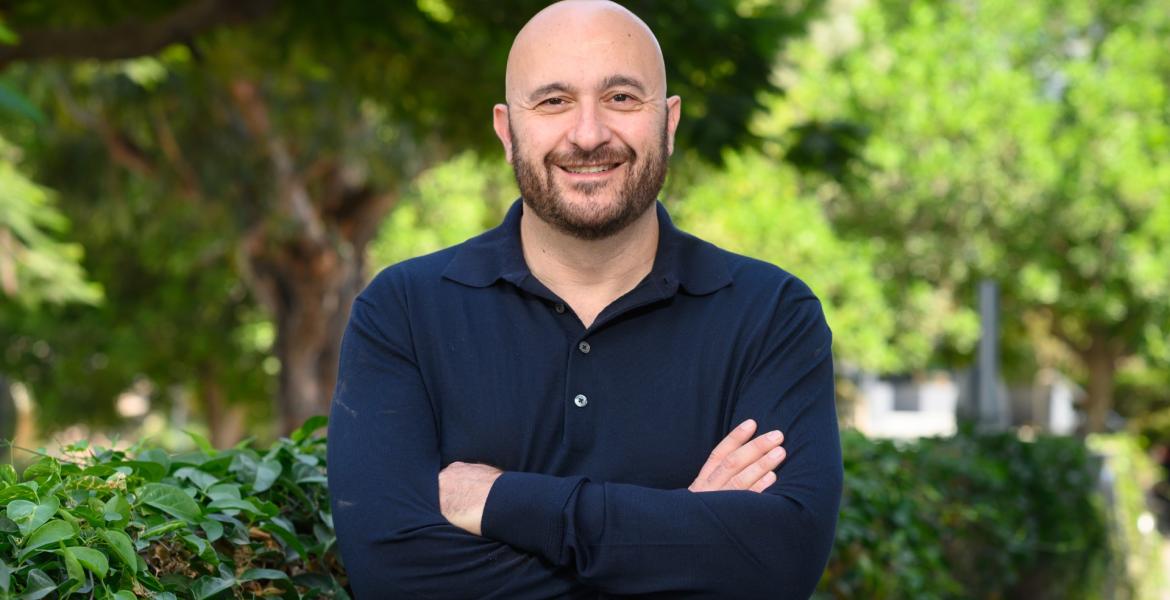Description of the research breakthrough:
Jacob (Yaqub) Hanna is an expert in pluripotent stem cell research and generating stem cell based developmental analogues. His work on studying transitions from pre-implantation naïve to post-implantation primed pluripotent states and his quest to isolate naïve-like pluripotent cells in mice and mammals has created interest in exploring how the primed post-implantation epiblast transitions through gastrulation towards organogenesis.
Background to the research:
To overcome the limitations blocking generating analogues of development, he engineered modernized roller culture incubator systems attached to in-house made controller systems and used novel growth conditions his team developed that allow in vitro capture of the entire gastrulation and organogenesis phases continuously over six days in mice in the petri dish.
The latter advance opened a new avenue for the interrogation of stem-cell-derived developmental analogues encompassing post-implantation development, as making high-fidelity models of development in the petri dish from in vitro grown pluripotent stem cells has been a long-held goal for developmental biologists. Until Hanna's groundbreaking work was published in 2022, all previous stem cell-derived aggregates (blastoids, organoids, gastruloids, etc.) did not represent bona fide developmental analogues entitles and could not advance through or complete gastrulation or show evidence of organogenesis, which are defining features of authentic developmental processes.
Thus, the breakthrough came only after Hanna’s group established an electronically controlled in vitro culture system and combined novel static and dynamic growth conditions that synergistically allowed the development of mouse embryos already from pre-gastrulation stages in vitro, which had not been achieved before. The latter accomplishment offered the crucial and exclusive platform to demonstrate and unleash the self-organizing capacity of mouse stem cells to generate post-gastrulation bona fide analogues of development in this unique in vitro set-up and only by starting from naïve pluripotent cells.
Standing:
Hanna was listed in 2014 among the top 40 international scientists by Cell and was elected EMBO member in 2018. He has received significant recognition for his groundbreaking work on pluripotent cells, early development, and stem cell derived developmental analogues.
In 2021, he was announced as the top thinker of the year 2021 by Prospect for his work on in vitro development. His extended in vitro mouse developmental analogue culture was selected among Science Breakthroughs of the Year in 2021, and his mouse stem cell derived developmental analogues were selected by Nature among seven technologies to watch in 2023. His laboratory’s generation of synthetic pluripotent cell-derived developmental analogues was selected as the Method of the Year in 2023 by Nature Methods.
Due to his groundbreaking work, he was named on the 2024 STATUS List by STAT News, a prestigious list recognizing the most influential individuals in healthcare, medicine, and the life sciences.
Biography:
Born in a Palestinian village in the Galilee region of Israel, Jacob (Yaqub) H. Hanna earned his PhD in immunology (2007), and MD in clinical medicine summa cum laude (2007) from the Hebrew University. He conducted postdoctoral research at the Whitehead Institute/MIT and joined the Weizmann Institute of Science as an assistant professor in 2011. In 2018, Hanna received academic tenure and promotion at the Department of Molecular Genetics in the Weizmann Institute of Science. In 2023, he became a Full Professor of Pluripotent Cell Biology and Synthetic Developmental Analogues.
Publications:
Aguilera-Castrejon A, Oldak B, Shani T, Ghanem N, Itzkovich C, Slomovich S, Tarazi S, Bayerl J, Chugaeva V, Ayyash M, Ashouokhi S, Sheban D, Livnat N, Lasman L, Viukov S, Zerbib M, Addadi Y, Rais Y, Cheng S, Stelzer Y, Keren-Shaul H, Shlomo R, Massarwa R, Novershtern N, Maza I, Hanna JH. “Ex utero mouse embryogenesis from pre-gastrulation to late organogenesis.” Nature (2021) 593(7857):119-124.
Tarazi S, Aguilera-Castrejon A, Joubran C, Ghanem N, Ashouokhi S, Roncato F, Wildschutz E, Haddad M, Oldak B, Gomez-Cesar E, Livnat N, Viukov S, Lokshtanov D, Naveh-Tassa S, Rose M, Hanna S, Raanan C, Brenner O, Kedmi M, Keren-Shaul H, Lapidot T, Maza I, Novershtern N, Hanna JH. “Post-gastrulation synthetic embryos generated ex utero from mouse naive ESCs.” Cell (2022) 185(15):3290-3306.
Oldak B, Wildschutz E, Bondarenko V, Aguilera-Castrejon A, Zhao C, Tarazi S, Comar M, Ashouokhi S, Lokshtanov D, Roncato F, Viukov S, Ariel E, Rose M, Livnat N, Shani T, Joubran C, Cohen R, Addadi Y, Chemla M, Kedmi M, Keren-Shaul H, Pasque V, Petropoulos S, Lanner F, Novershtern N, Hanna JH. “Complete human day 14 post-Implantation embryo models from naïve ES cells.” Nature (2023) 622, 562-573.
Bayerl J, Ayyash M, Shani T, Manor Y, Gafni O, Massarwa R, Kalma Y, Aguilera-Castrejon A, Zerbib M, Amir H, Sheban D, Geula S, Mor N, Weinberger L, Naveh-Tassa S, Krupalnik V, Oldak B, Livnat N, Tarzi S. Tawil S, Wildschutz E, Ashouokhi S, Lasman L, Rotter V, Hanna S, Ben-Yosef D, Novershtern N, Viukov S, Hanna JH. “Principles of signaling pathway modulation for enhancing human naïve pluripotency induction.” Cell stem cell (2021) 28(9):1549-1565.



































